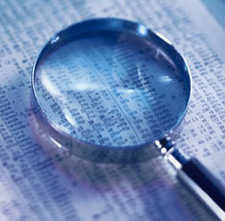 Due diligence is not just a process, it is also a reality test — a test of whether the factors driving the deal and making it look attractive to the parties are real or illusory. Due diligence is not a quest to find the deal-breakers but a test of the value proposition underlying the transaction to make sure that the inside of the house is as attractive as the outside. Once the foundation has been dissected, it can either be rebuilt around a deal that makes sense or allow the buyer to walk away and prevent the consummation of a deal that doesn’t make sense.
Due diligence is not just a process, it is also a reality test — a test of whether the factors driving the deal and making it look attractive to the parties are real or illusory. Due diligence is not a quest to find the deal-breakers but a test of the value proposition underlying the transaction to make sure that the inside of the house is as attractive as the outside. Once the foundation has been dissected, it can either be rebuilt around a deal that makes sense or allow the buyer to walk away and prevent the consummation of a deal that doesn’t make sense.
Overall, the due diligence process, when done properly, can be tedious, frustrating, time-consuming, and expensive. Yet it is a necessary prerequisite to a well-planned acquisition, and it can be quite informative and revealing in its analysis of the target company and its measures of the costs and risks associated with the transaction. Buyers should resist the temptation to conduct a hasty “once over,” either to save costs or to appease the seller. Yet at the same time, they should avoid “due diligence overkill,” keeping in mind that due diligence is not a perfect process and should not be a tedious fishing expedition. Like any audit, a diligence process is designed to answer the important questions, and ensure with reasonable assurance that the seller’s claims about the business are fair and legitimate.
Proper due diligence involves knowing:
– where to look
– what to ask
– what tools to use
– who to ask
– how to test premises/answers
– who should ask
Effective due diligence is both an art and a science.
The art is the style and experience to know which questions to ask and how and when to ask them. It’s the ability to create an atmosphere of both trust and fear in the seller, which encourages full and complete disclosure. In this sense, the due diligence team is on a risk discovery and assessment mission, looking for potential problems and liabilities (the search), and finding ways to resolve these problems prior to closing and/or to ensure that risks are allocated fairly and openly after the closing.
The “Art” of Due Diligence:
– Understanding how to extract key information from a person or situation
– Understanding the objectives of the parties and the underlying transaction
– Identifying key hurdles and risks
– Identifying why information might be falsified or omitted
– Targeting the proper sources for disclosure of information
The science of due diligence is in the preparation of comprehensive and customized checklists of the specific questions to be presented to the seller, in maintaining a methodical system for organizing and analyzing the documents and data provided by the seller, and in quantitatively assessing the risks raised by those problems discovered in the process.
The “Science” of Due Diligence:
– Do your homework
– Be prepared and well-organized
– Be precise in your requests
– Be persistent in your quest for the truth
– Don’t accept the first answer as the final answer
Andrew J. Sherman, is the author of several books, including The AMA Handbook of Due Diligence, Harvesting Intangible Assets, Mergers and Acquisitions from A to Z, Raising Capital, and Franchising and Licensing. He is a partner in the Washington, D.C. office of Jones Day and a top-rated Adjunct Professor in the MBA and Executive MBA programs at the University of Maryland. For more information please visit http://amacombooks.org/




